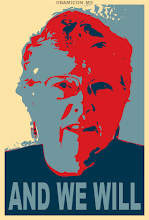John Mohawk, beloved man of wisdom, passes on : ICT [2006/12/15]
Editors' note: Indian Country Today is thankful for the early thoughts shared below by former editor Jose Barreiro, long-time friend and collaborator of John Mohawk. Barreiro currently serves at the Smithsonian National Museum of the American Indian.
BUFFALO, N.Y. - Indian country lost a major luminary with the recent passing of Sotsisowah, the Seneca author and traditionalist known in the broader society as John Mohawk, Ph.D.
Mohawk, 61, was pronounced dead at his home in Buffalo on Dec. 12. He is mourned by large numbers of people, expressing the most heartfelt condolences to the family and close relatives of this beloved man of wisdom.
A longtime professor at the State University of New York at Buffalo, the highly talented and engaging scholar was a motivating force in the Indian traditionalist movement and the national and international indigenous initiative of self-sufficiency and self-assertion of the contemporary era. Mohawk's essays and speeches from the early 1970s, through his genial direction of the national Indian newspaper, Akwesasne Notes, from 1976 to 1984, were pivotal contributions to the development of intellectual capacity in the Indian movement. From his academic perch, Mohawk developed enlightening university courses while sustaining a wide-ranging program of writing and community educational and oratorical forays. In recent years, he had been an opinion columnist for Indian Country Today.
Intensely steeped in the spiritual ceremonial traditions of the Haudenosaunee people through his foundational longhouse culture at the Cattaraugus Reservation in western New York, Mohawk was one of those rare American Indian individuals who comfortably stepped out into the Western academic and journalistic arenas. He was an enthusiastic participant in his own traditional ways, a legendary singer and knowledgeable elder of the most profound ceremonial cycles of the Haudenosaunee. As a scholar, he represented the Native traditional school of thought in a way that was as authentic as it was brilliantly modern and universal.
Mohawk wrote several important books and articles, among which is the classic ''Basic Call to Consciousness,'' a seminal work that catalyzed Native thinking and understanding of global history in a way that was superbly useful. Later, along with Onondaga elder Oren Lyons, Mohawk edited the important book ''Exiled in the Land of the Free,'' which gathered the significant thinking around foundational American Indian rights. His research and writing on ''Basic Call to Consciousness'' was typical of his style as an activist scholar. It was largely written during the winter and spring of 1977 in the deep woods of upstate New York, where the author was often prodded by the visits of Haudenosaunee chiefs, clan mothers and other elders, to whom he would read his developing prose and who would comment deeply on the manuscript.
Many will credit John Mohawk as the major intellectual and strategic force behind the surge of Haudenosaunee activism of the past 30 years. Many more know and respect him for his many expressions on important national and international issues. While he published and lectured widely, Mohawk generously gave much of his intellectual prowess directly to community issues. At moments when traditionalist life was threatened, he worked diligently to establish strategic directions for the longhouse and other traditionalist governments. One remembers many instances in which Mohawk made a huge difference in dangerous moments of interethnic and political conflict. Many are the times when he forsook professional glory or advancement to join the battle lines, where he employed his powerful intellect to save life while always pressing the demand for Native peoples' unique sovereign rights.
A strong defender of national and international human rights, Mohawk was a mentor to hundreds, perhaps thousands, of Indian and non-Indian college students and young professionals, many of whom have gone on to fulfill important posts. He was a great and loyal friend, one who could tease you to tears while marveling your life with incredible sweetness, consistency and human value.
John Mohawk was self-effacing to a fault. Easily admired and even revered, he shunned and suspected any such feelings. This came out of his natural deep integrity. He was wont to tell enraptured audiences, ''Remember one thing, if you remember nothing else I've told you: I am not a star!''
He was wrong on that one. John Mohawk was - is - a star.


Links to this post:
Create a Link
<< Home